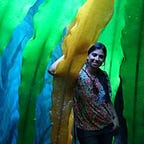The fastest book I read this year: How I Learned to Understand the World
Hans Rosling was a Swedish physician and statistician who is known for his work on global health and development. He is the author of Factfulness a bestseller.
His second book How I Learned to Understand the World: A Memoir is a prequel to Factfulness. It focuses on his own personal journey and the events that helped him develop a fact based mindset. He started his career as a Physician transitioned to a professor, statistician and educater. He worked with the WHO, world leaders, international governments and people from all walks of life from highly educated to illiterate.
In his memoir, Hans Rosling transports readers from the current chaotic world to Nacala, Mozambique in 1980, where a young doctor from Sweden spent two years learning about the problems of resources in a poor country, handling patients in crisis in constrained environments, and making difficult choices between saving one child and educating 100 mothers.
People living in remote villages in Mozambique in those times had neither the means to access the medical system nor faith in it. Once, a pregnant woman from such a village arrived with heavy bleeding. To save her life, Hans had to extract pieces of a dead foetus. Unfortunately, she didn’t survive. Such an incident could further deter people from seeking medical help in dire circumstances. However, Hans turned this situation around and was still able to gain the trust of the villagers based on not just his scientific knowledge but also his cultural understanding and emotional connection. Twenty years later, most women in the village were vaccinated for measles, preventing infant deaths.
Hans is known for his research on an illness called Konzo, whose symptom is lower limb paralysis. He found that it occurred in dry areas cultivating cassava, a root vegetable. Cassava is a high-carbohydrate crop with sweet and bitter (poisonous) varieties. Only the women harvesting the crop knew how to soak, grate, ferment, and dry it in the sun to remove the poison and bitterness. In extreme conditions with nothing else available, eating it caused many outbreaks.
He landed with his team in a remote village to research this based on blood samples of villagers. The rumors that the foreigners had a sinister plan of stealing their blood spread and swarms of villagers showed up outside their test centre with machetes. He didn’t speak the language but with help of an interpreter, he tried to convince the crowd. A woman in the crowd saved his life, explaining how the research is crucial for the villagers. She referenced how infants died in the village until measles vaccines arrived.
The book is filled with such thrilling episodes and also many of his personal anecdotes, some tragic and some funny. Reading this memoir was like having a long conversation with this kind and brilliant soul.
I read this book faster than any other this year due to its simple writing, my admiration for the author’s previous book, Factfulness, and his realistic approach to the subject matter.
Although I read Factfulness a few years ago, I still remember two key takeaways:
First, the book sheds light on the biases that we may have developed by reading history books. The world has changed a lot in the last 100 years. The West is no longer the leader in health standards. Poor countries have made significant progress in mortality rates, access to education, and so on.
Second, the book reveals that the big leaders or media who attend the World Economic Forum are not the most knowledgeable about these topics. These people, who are responsible for making huge decisions about climate change, the oil crisis, and wars, often do poorly on basic facts and trends.
I would recommend everyone to read Factfulness and see some of his talks and if you like those, this book will be a quick ride too.
Conclusion:
Hans Rosling’s books offer a unique glimpse into the mind of a brilliant scientist and humanitarian. I highly recommend it to anyone who wants to learn more about global health, development, and the power of data to change the world.
Acknowledgements: This article was proof-read by Bard. I found the tips thought provoking and I ended up covering more aspects of the book.
